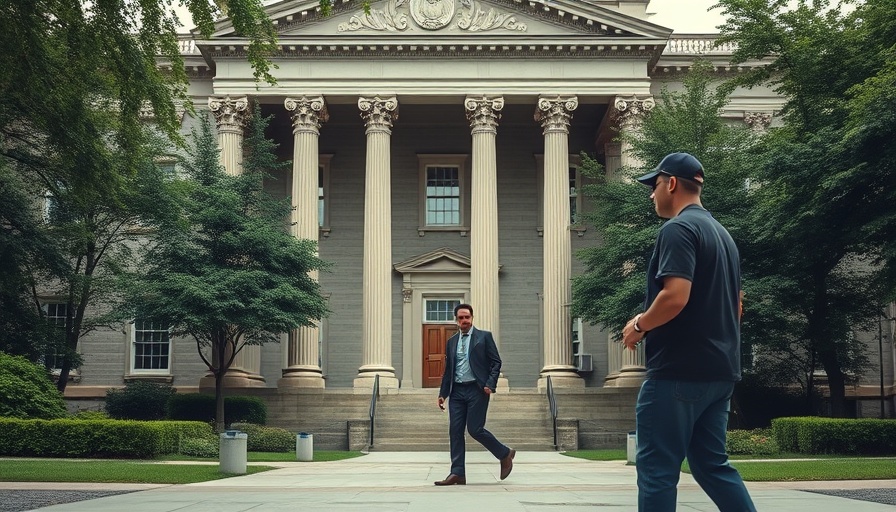
Recent Clashes: Context of the Pro-Palestinian Protest at Columbia University
On May 7, 2025, a Pro-Palestinian protest at Columbia University escalated into chaos as demonstrators clashed with security personnel inside the university's library. This incident reflects ongoing tensions surrounding the Israeli-Palestinian conflict, particularly in academic settings where freedom of speech and political activism often intersect with issues of public safety and property rights.
The Events Unfolded: A Timeline of the Protest
The protest started when a masked group of activists bypassed campus security, rushing into the library to unfurl Palestinian flags and display banners. Eyewitness videos captured the moment as protestors vandalized internal walls and shouted slogans, inciting campus officials to call for police intervention. Shortly thereafter, dozens of NYPD officers entered the scene, leading to the arrest of over 30 individuals, as demonstrators rallied outside the building shouting supportive chants.
Reactions from University Officials and Law Enforcement
Columbia's acting president, Claire Shipman, expressed outrage at the disruption, highlighting the plight of students who were studying for final exams during the confrontation. Shipman stated that the protesters were repeatedly asked to leave but refused, prompting the university to involve law enforcement for safety concerns. New York City Mayor Eric Adams backed this action, emphasizing the importance of maintaining order on campus.
The Political Ramifications: Local and National Responses
The clash has sparked a wide array of reactions, not only from local leaders but on a national level as well. Governor Kathy Hochul condemned the protesters' actions as unacceptable, asserting that while peaceful demonstrations are a constitutional right, violence and property damage are not. Eric Adams and U.S. Secretary of State Marco Rubio echoed her sentiments, with Rubio suggesting a review of visa statuses for individuals involved in the protest.
Insights into Academic Freedom and Political Activism
This protest raises complex questions about the role of universities as spaces for free speech versus their responsibility to ensure safe learning environments. In the years leading up to this incident, there has been a notable increase in tensions surrounding the Israeli-Palestinian narrative at American universities, culminating in serious discussions about academic freedom and the implications of politically charged protests.
Future Considerations: Addressing the Divide
As we advance, it is crucial for universities to address how they manage protests and students' voices without compromising safety. The current political climate prompts ongoing dialogues about how institutions can facilitate constructive discussions about sensitive topics without letting protests escalate into violence or disruption.
Tools for Community Engagement: Fostering Understanding Among Diverse Perspectives
With events like these highlighting the deep divisions in public opinion on the matter, fostering understanding requires open dialogue between all parties. Community leaders and educators can play pivotal roles by creating platforms for constructive conversations about political activism in such charged discussions.
Conclusion: The Importance of Responsible Protest
As the dust settles on this altercation at Columbia, it serves as a poignant reminder of the complexities at the intersection of free speech and public safety. Understanding the nuances of these events—and their implications for students, faculty, and law enforcement—underscores the need for ongoing conversations about political expression in academic settings. To explore more on how such incidents shape our communities, engage in local discussions or reach out to educational institutions to learn about their policies on political activism.
 Add Row
Add Row  Add
Add 






Write A Comment